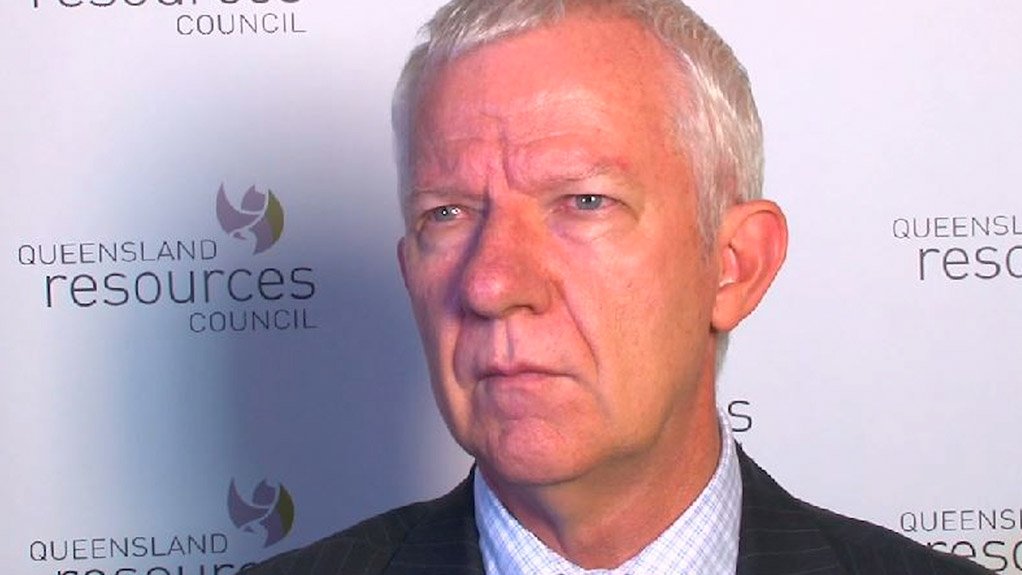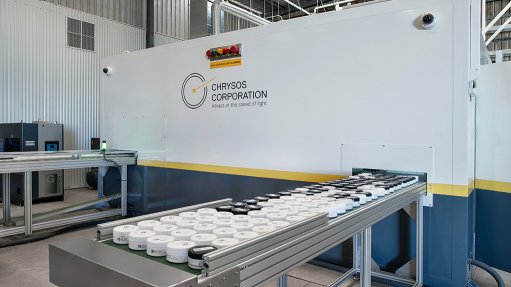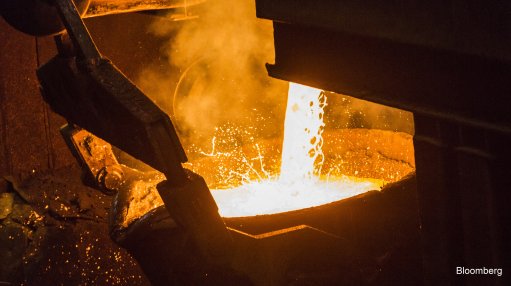Queensland's position as a favourable mining jurisdiction in jeopardy – QRC
JOHANNESBURG (miningweekly.com) – Queensland risked losing major projects owing to perceptions of its investment attractiveness declining, Queensland Resources Council (QRC) CE Michael Roche said on Wednesday.
“Putting to one side the lies being peddled in the UK by nongovernmental environmental advocacy organisation Greenpeace, over future management of the Great Barrier Reef, a more subtle, but equally damaging, message is Queensland’s on-again, off-again approach to resources policy,” he said at the Australian Copper Conference, in Brisbane.
Roche said that despite some positive government initiatives that he “happily acknowledged”, Queensland’s attractiveness as an investment destination had suffered “more than once from perceptions of policy risk”.
In 2013, Queensland’s former Premier Campbell Newman annexed bauxite developer Cape Alumina’s Pisolite Hills bauxite project in favour of the state’s first “strategic environmental area”.
Cape Alumina in December 2013 officially abandoned its $1.2-billion Pisolite Hills mining project, which had an estimated 134.6-million tons of in situ bauxite. Cape Alumina reported that the resource had the potential to yield up to seven-million tons a year of dry-product bauxite over a 15 year life-of-mine.
Roche stated the decision taken by the Newman administration was in fact a “second death sentence for the project” following its rejection in 2010 under the previous government’s contentious Wild Rivers legislation, which was subsequently repealed in 2014.
The Wild Rivers legislation in essence designated rivers and set out the restrictions on the development of natural resources, as well as applicable rules or limits on the development activities in the designated wild river area.
“One could excuse company executives for thinking something is amiss in Queensland, when a project can tick all its environmental assessment boxes, be rejected on a Minister’s call, revitalised, encouraged to proceed and then be rejected again in the space of three years,” Roche said.
He further warned that Queensland was in danger of repeating itself owing to the government’s recent declaration that sand mining on North Stradbroke Island would be phased out by 2019 owing to its negative environmental and ecological impact on the area. This deadline was originally imposed by the former Premier Anna Bligh-led government in 2011, and was overturned by her successor Jeffrey Seeney.
Environmental lobby groups argue that the continuation of sand mining threatens the island’s ecosystems, fragile water bodies and the island’s economic future. These groups highlight the federal government’s Fraser Island Inquiry of 1976, which concluded that sand mining on Queensland’s fragile sand islands caused, in the words of then Prime Minister Malcolm Fraser, “major permanent and irreversible damage”.
“I doubt if I am alone in worrying about one-term governments becoming the norm, especially when my members make investments that must, because of their capital-intensive nature, stretch over decades,” said Roche.
He highlighted that he had raised with the Premier Annastacia Palaszczuk and Environment Minister Steven Miles the QRC’s concerns that a 2019 end to sand mining on North Stradbroke Island was unachievable.
“There is no way this government, in fact, any government, can develop and implement a plan to find replacement jobs for about 270 mine employees and hundreds more contractors, as well as replace the yearly injection by sand mining of $130-million a year into the island’s economy in the proposed timeframe,” stressed Roche.
However, he said that he had been assured, by the Environment Minister that the QRC would be consulted on this matter.
“I will be urging the government to work towards a win-win for the island, for the state and for the environment.”
Roche also told conference delegates that with the passing of the resources investment peak, producers were focused on the transition to globally competitive production.
“The vital message for the investment community, governments and the Australian people is that the medium- to long-term demand fundamentals for minerals and energy commodities remain strong,” he asserted.
Roche pointed out that copper demand would continue to increase with global infrastructure development and that the future of copper smelting in Mount Isa and refining in Townsville had been boosted by recent legislative changes supported by the Australian Labor Party, the Liberal National Party of Queensland and Katter’s Australian Party.
In March, the government introduced the Payroll Tax Rebate, Revenue and Other Legislation Amendment Bill. One of the amendments proposed in the Bill is the removal of a potential barrier to the extension of the life of the copper smelter at Mount Isa beyond 2016.
“Closure of the smelter would cause significant job losses in both Mount Isa and Townsville. The smelter operates under a Transitional Environmental Programme (TEP) that authorises operating parameters different to the environmental authority during a transitionary period.
“The extension of the life of the smelter is inconsistent with a commitment made by the operator in a draft TEP. The TEP was subsequently approved under the Environmental Protection Act 1994 and noted on the operator’s environmental authority, so is now legally binding on the current operator,” the Bill state.
The Bill further notes that the environmental impact of any extension of the life of the smelter is expected to be managed under amended conditions of the environmental authority, rendering the TEP unnecessary.
Queensland had fallen down the ranks in the world’s mining destinations as measured by Canada’s authoritative Fraser Institute. In its latest survey, which was published earlier in 2015, Queensland’s position on the policy perception index fell to 33 in 2014, from 27 in 2013.
The institute attributed the decline to increased concerns over political stability, availability of labour and skills, and socioeconomic agreements, as well as community development conditions.
Comments
Press Office
Announcements
What's On
Subscribe to improve your user experience...
Option 1 (equivalent of R125 a month):
Receive a weekly copy of Creamer Media's Engineering News & Mining Weekly magazine
(print copy for those in South Africa and e-magazine for those outside of South Africa)
Receive daily email newsletters
Access to full search results
Access archive of magazine back copies
Access to Projects in Progress
Access to ONE Research Report of your choice in PDF format
Option 2 (equivalent of R375 a month):
All benefits from Option 1
PLUS
Access to Creamer Media's Research Channel Africa for ALL Research Reports, in PDF format, on various industrial and mining sectors
including Electricity; Water; Energy Transition; Hydrogen; Roads, Rail and Ports; Coal; Gold; Platinum; Battery Metals; etc.
Already a subscriber?
Forgotten your password?
Receive weekly copy of Creamer Media's Engineering News & Mining Weekly magazine (print copy for those in South Africa and e-magazine for those outside of South Africa)
➕
Recieve daily email newsletters
➕
Access to full search results
➕
Access archive of magazine back copies
➕
Access to Projects in Progress
➕
Access to ONE Research Report of your choice in PDF format
RESEARCH CHANNEL AFRICA
R4500 (equivalent of R375 a month)
SUBSCRIBEAll benefits from Option 1
➕
Access to Creamer Media's Research Channel Africa for ALL Research Reports on various industrial and mining sectors, in PDF format, including on:
Electricity
➕
Water
➕
Energy Transition
➕
Hydrogen
➕
Roads, Rail and Ports
➕
Coal
➕
Gold
➕
Platinum
➕
Battery Metals
➕
etc.
Receive all benefits from Option 1 or Option 2 delivered to numerous people at your company
➕
Multiple User names and Passwords for simultaneous log-ins
➕
Intranet integration access to all in your organisation





















